From paving the way to the naturalization of people of Indian descent to writing laws that guaranteed gender equality in education, Asian American politicians have made a lasting impact on the institutions of the United States.
In honor of Asian Pacific American Heritage Month, NBC Asian America looks back at some of these political trailblazers.
Patsy Mink (1927-2002)
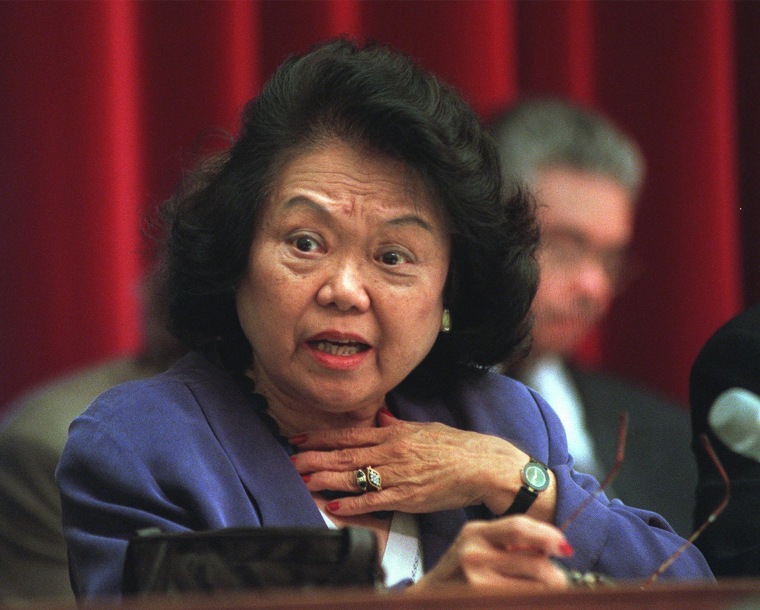
The first woman of color elected to Congress, Patsy Mink showed her determination at an early age.
Born and raised in Paia, Hawaii, Mink graduated from Maui High School in 1944 as class president and valedictorian.
While pursuing an undergraduate degree at the University of Nebraska — which reportedly had a policy of segregating minority and white students into separate dorms — Mink started a student coalition that successfully lobbied to end the segregation policies.
Later, she attended law school at the University of Chicago. In 1964, Mink was elected to Congress, becoming the first Asian American woman and the second woman from Hawaii to serve in Congress.
Mink focused on issues affecting Asian Americans, women and families. She co-authored and sponsored the Title IX Amendment of the Higher Education Act, which was passed in 1972 and prohibited gender discrimination in education programs in public schools as well as at colleges and universities. President George W. Bush renamed the law after Mink's death in 2002, at 74, the Patsy T. Mink Equal Opportunity in Education Act.
“America is not a country which needs to demand conformity of all its people, for its strength lies in all our diversities converging in one common belief, that of the importance of freedom as the essence of our country,” Mink said during a speech in 1967 before the House of Representatives.
Dalip Singh Saund (1899-1973)
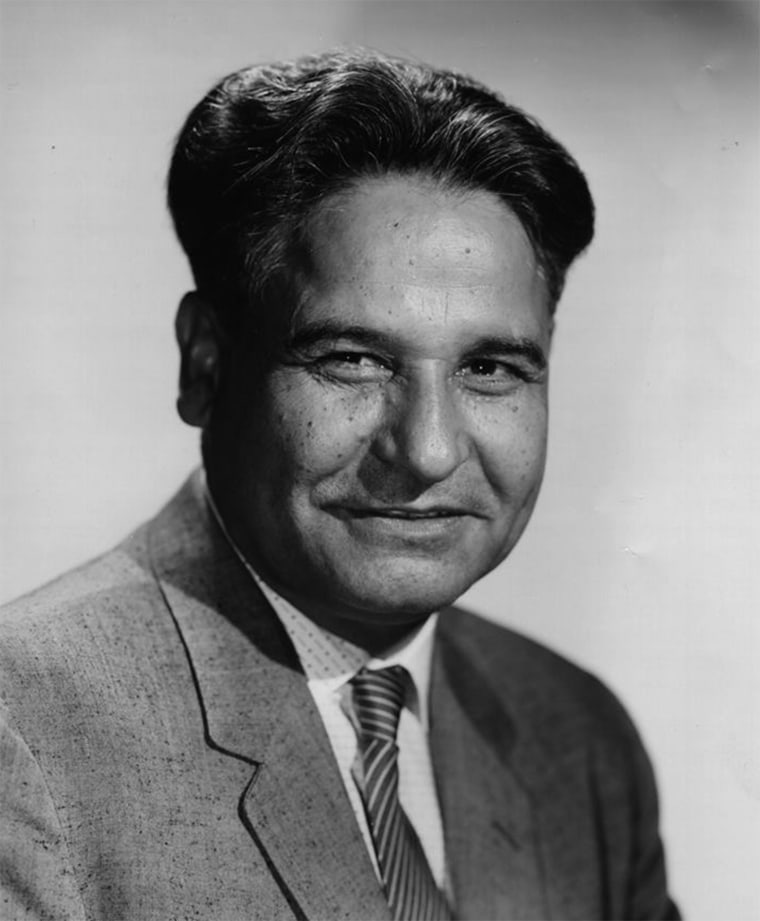
Dalip Singh Saund was the first Sikh and first Indian American elected to Congress.
He emigrated from India in 1920 through way of Ellis Island, and attended the University of California, Berkeley, for his masters and Ph.D. in mathematics. After getting married, he and his family moved to the farming community of Westmorland, California, where Saund became interested in politics. But because he wasn’t a U.S. citizen, his ability to participate was limited.
In the 1940s, he organized efforts to open citizenship to Indians living in the U.S. and eventually Congress passed a bill in 1946 allowing Indian immigrants to pursue naturalization. Saund officially became a U.S. citizen in 1949. The following year, he ran for a judgeship and won, but the election was vacated because he had been a citizen for less than a year. Saund successfully ran again two years later and served for four years.
In 1955, Saund announced his campaign to run for the House of Representatives as a Democrat and was re-elected twice. He was a supporter of the 1957 Civil Rights Act and used his own story to advocate its passage.
“No amount of sophistry or legal argument can deny the fact that in 13 counties in one state in the United States of America in the year 1957, not one Negro is a registered voter,” Saund, who died in 1973, at 73, said during a speech in support of the law. “Let us remove those difficulties, my friends.”
Hiram Fong (1906-2004)
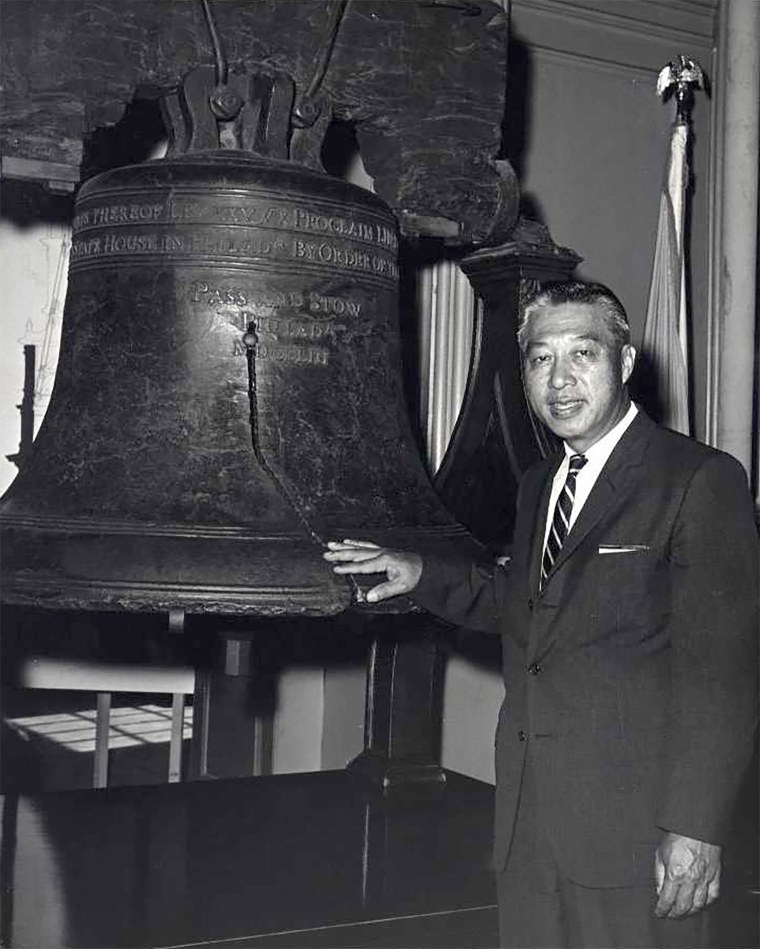
Born to Chinese immigrants in Hawaii, Fong was one of Hawaii's first senators, the first Asian American senator and still the only Republican elected to the Senate from Hawaii.
He attended Harvard Law School and was elected a member of the Hawaii Territorial House of Representatives in 1938. He put his political career on hold during World War II, when he served as a judge advocate in the U.S. Army Air Forces, but he was re-elected when he ran in 1946.
After Hawaii achieved statehood in 1959, Fong was elected to the Senate, and held the seat until he retired in 1977.
As a Republican, Fong said in a 1985 interview that he felt the Hawaii House of Representatives was too one-sided during his time there. He referred to himself as a “maverick” when recalling a dispute with a fellow Republican, Roy Vitousek, when Fong chose not to vote for him as speaker of the House.
“I wasn’t a conformist,” said Fong, who died in 2004, at 97. “I felt that things should be equally balanced. And I still think now it is unequally balanced. That it should be balanced. That one side should hold the other side's feet to the fire. That's the way you have good government.”
George Ariyoshi (1926-)
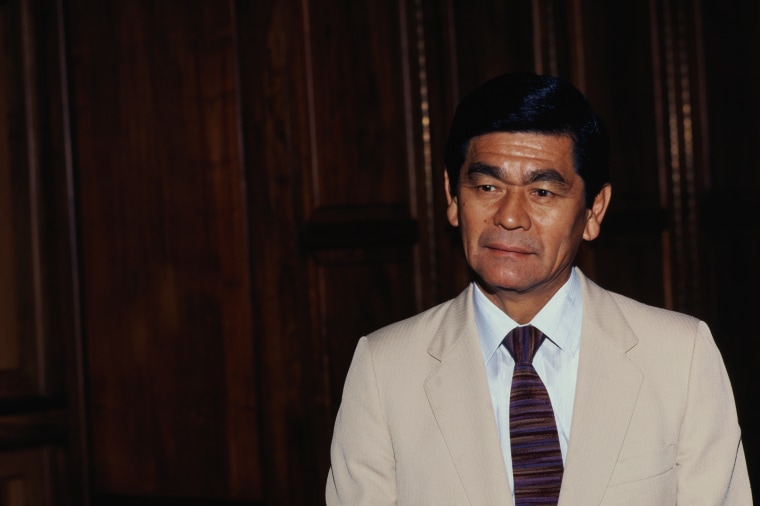
Born in 1926 to Japanese immigrant parents in Hawaii, George Ariyoshi was the first Asian American governor of a U.S. state and Hawaii’s longest-serving governor, in office from 1974 to 1986.
Before public office, he was an interpreter with the U.S. Army Military Intelligence Service in Japan at the end of World War II. When Ariyoshi returned to the U.S., he attended college at the University of Hawaii in Manoa and transferred to Michigan State University. He went to law school at the University of Michigan in 1952.
He started his political career in 1954 when he was elected to the Hawaii Territorial House of Representatives. He was later elected to the Hawaii Territorial Senate and then the Hawaii State Senate, serving there until 1970 when he was elected lieutenant governor.
When John Burns, the governor at the time, fell ill in October 1973, Ariyoshi became the acting governor. In 1974, Ariyoshi won election outright. He was re-elected in 1978 and 1982.
Ariyoshi's administration was marked by fiscal conservatism. Since retiring, Ariyoshi, now 93, has remained active in the business community.
In an interview in 2008, Ariyoshi recalled a conversation he had with Burns before jumping into politics.
“I told Jack Burns that primarily what I saw in the community was inequality in this community. I told him that everything depends on who you know,” Ariyoshi said. “And I told him I don’t want to live in a community like that. I want to live in a community where if I’m better than somebody else, I win. If somebody else better than me wins, that person wins. That’s the kind of community I want to live in. And then he told me, ‘Run for office.’”
Norman Mineta (1931-)
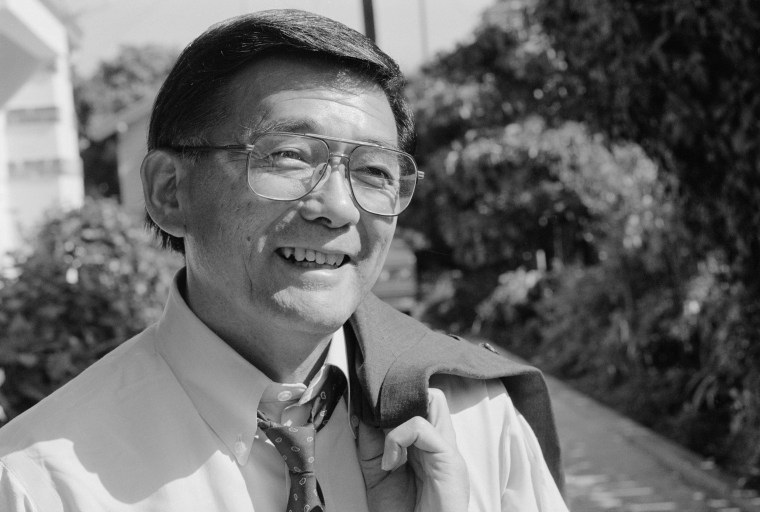
Born in San Jose, California, in 1931 to Japanese immigrants, Mineta and his family experienced anti-Asian policies first hand when they were denied the ability to naturalize and were detained in an incarceration camp in Wyoming during World War II.
In 1967, Mineta was appointed to a vacant San Jose City Council seat by then-Mayor Ron James. In 1971, Mineta became the first Asian American mayor of a major city in the U.S., and in 1974, he ran for a seat in the House of Representatives.
While in Congress, he was instrumental in the Civil Liberties Act of 1988, which officially apologized for the injustices faced by Japanese Americans during World War II. He also established the Congressional Asian Pacific American Caucus (CAPAC) in 1994 to ensure that federal legislation and policies reflect the needs of the Asian American and Pacific Islander community.
In 2016, he wrote an essay in Time magazine about his hopes that history would not repeat itself.
“This is the time when we must appeal to the good in humanity to create a more just nation that treats all Americans with the dignity they deserve,” Mineta, now 87, wrote. “We must ensure that the most tragic civil rights chapters in our history remain where they belong — in history books and museums as part of our past, and not as part of our future.”
Follow NBC Asian America on Facebook, Twitter, Instagram and Tumblr.